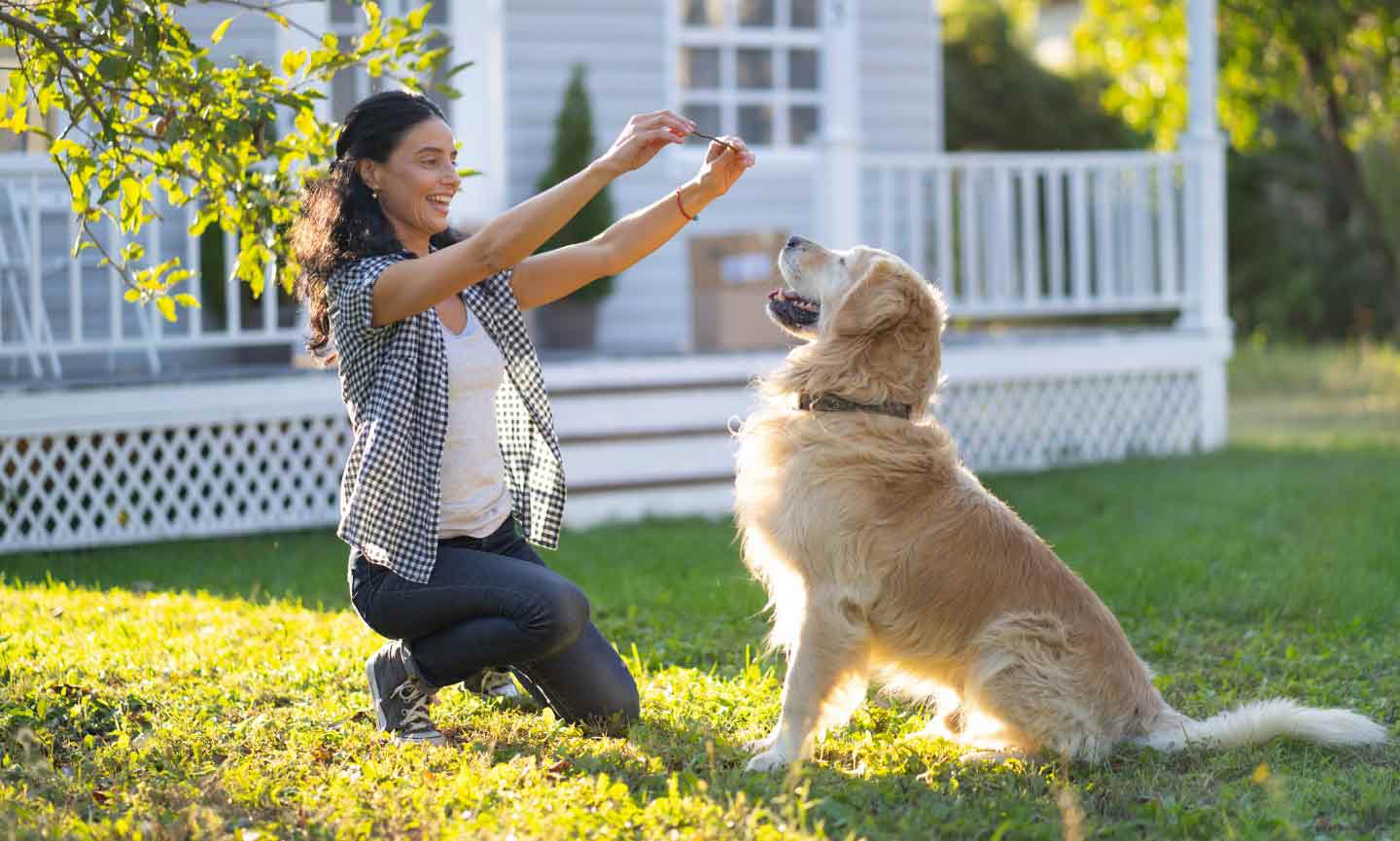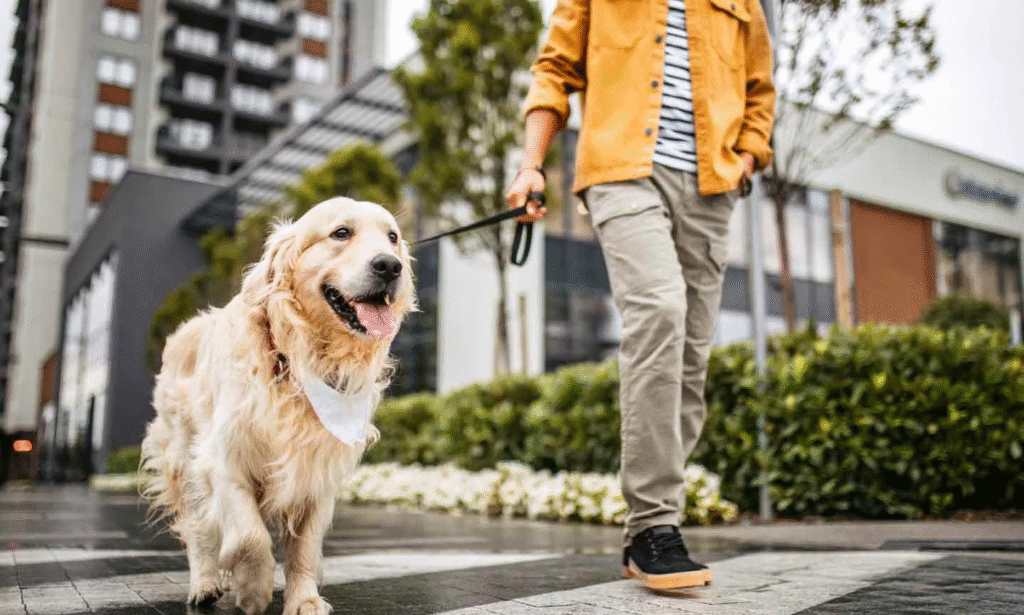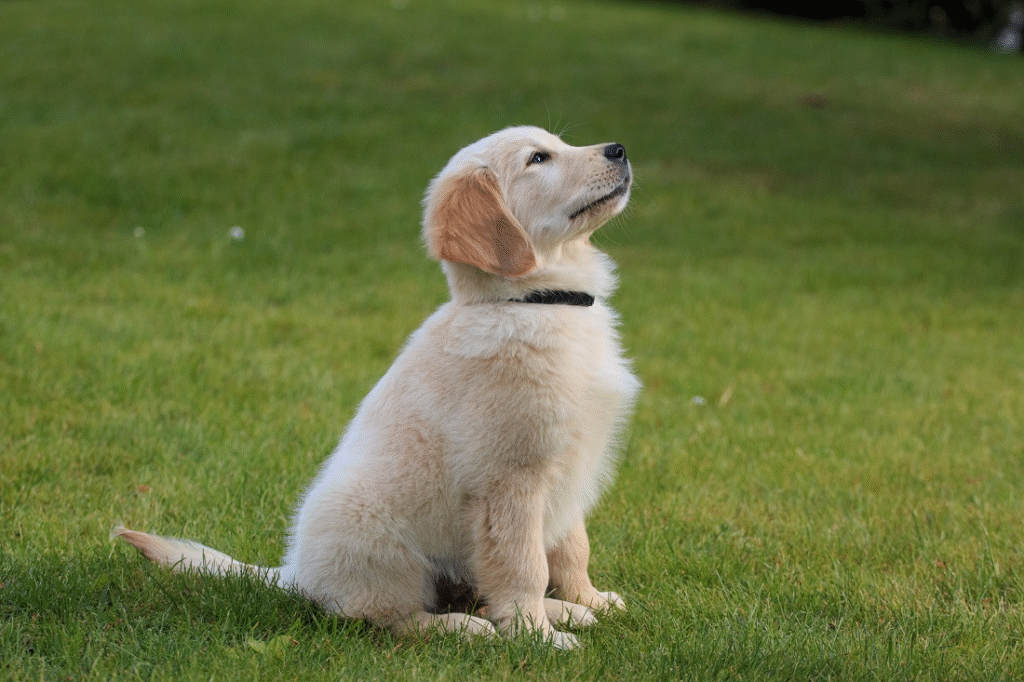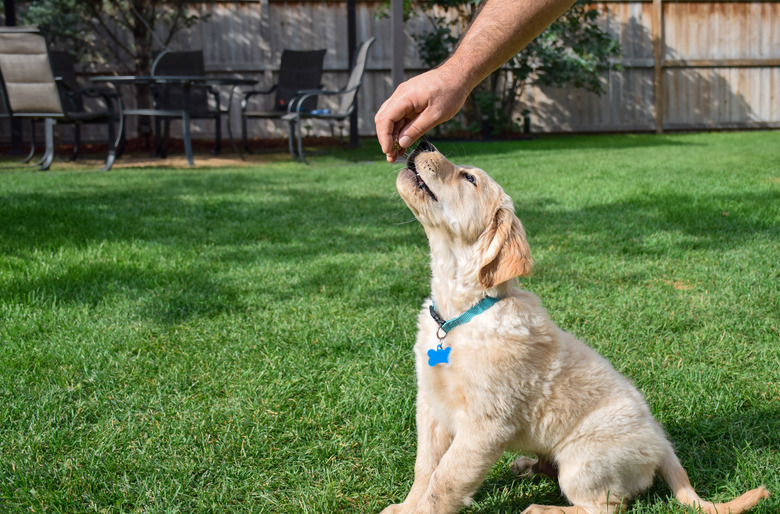What Are the Best Training Tips for Golden Retrievers?

Golden Retrievers are among the most beloved dog breeds thanks to their intelligence, loyalty, and gentle nature. Whether you’re raising a playful puppy or guiding an adult dog, proper training is the key to building a well-behaved companion. If you’re considering New Jersey Golden Retrievers, starting early with consistent and positive training methods will ensure they grow into happy, obedient, and family-friendly dogs.
Why Training Golden Retrievers Is Important

Builds a Strong Bond Between Owner and Dog
Training sessions are more than just lessons; they are opportunities to connect with your dog. Golden Retrievers thrive on human interaction and attention. When you spend time teaching them commands, rewarding good behavior, and practicing consistency, your dog learns to trust you as their leader. This trust deepens the emotional bond, creating a lifelong partnership based on respect, love, and understanding.
Encourages Good Manners at Home and in Public
A well-trained Golden Retriever knows how to behave around family, guests, and strangers. Teaching simple manners such as not jumping on people, waiting patiently for food, and walking politely on a leash ensures that your dog is welcome everywhere. Whether you’re at home, in the park, or at a busy café, obedience training makes outings enjoyable and stress-free for both you and your pup.
Prevents Destructive Behavior and Anxiety
Golden Retrievers are active and intelligent dogs. Without training and stimulation, they may resort to chewing furniture, excessive barking, or digging as outlets for their energy. Training provides both mental and physical challenges, keeping your Retriever engaged and reducing boredom-related behavior. Additionally, structured training builds their confidence and reduces separation anxiety, helping them stay calm even when you’re away.
Start Training Early

The Importance of Early Socialization
Socialization is one of the most critical parts of early training. Between 8–16 weeks of age, puppies are especially open to new experiences. During this stage, expose your Golden Retriever to different people, children, pets, and everyday environments. Take them on short car rides, let them hear household noises, and introduce them to friendly dogs. This helps prevent fear-based behavior later in life and encourages your pup to grow into a confident, well-adjusted adult dog.
Puppy Training Basics
Golden Retriever puppies should be introduced to simple commands early, such as sit, stay, and come. Keep training sessions short (5–10 minutes) and fun, so your puppy stays engaged. Using hand signals along with verbal commands can also help them understand faster. Even small successes deserve praise — over time, these small steps will build the foundation for more advanced obedience.
Use Positive Reinforcement

Reward-Based Training
Treats, praise, belly rubs, or playtime are powerful motivators for Golden Retrievers. When they respond correctly to a command, reward them immediately to reinforce the behavior. For example, if your pup sits when asked, offer a small treat and lots of praise right away. Over time, your dog will associate obedience with positive outcomes.
Avoid Harsh Punishments
Punishment-based training can harm your dog’s confidence and damage the bond you’re building. Golden Retrievers are sensitive by nature, so harsh corrections may make them fearful or anxious. Instead of scolding, redirect unwanted behavior and reinforce good actions with consistency and kindness. This approach results in better long-term behavior and a happier dog.
Focus on Obedience Training

Core Commands Every Golden Retriever Should Learn
Teaching essential commands is crucial for safety and good behavior. The four most important commands include:
- Sit – A basic command that teaches patience and control.
- Stay – Helps prevent accidents and ensures safety in public places.
- Come – Critical for recall, especially during off-leash activities.
- Heel – Encourages calm walking and prevents leash pulling.
Practicing these commands daily makes outings smoother and keeps your dog safe in various environments.
Crate and Potty Training
Crate training gives your Golden Retriever a personal safe space where they can rest and feel secure. When used properly, it also aids in housebreaking since dogs naturally avoid soiling their sleeping area. Combine crate training with a consistent potty schedule, rewarding your pup whenever they eliminate outdoors. With patience, your Retriever will quickly learn where and when it’s appropriate to go.
Provide Mental and Physical Stimulation

- Daily Walks, Fetch, and Swimming Sessions: Golden Retrievers love exercise, and activities like long walks, runs, or a swim are excellent outlets for their energy. Playtime such as fetch not only keeps them fit but also reinforces recall training.
- Puzzle Toys and Interactive Games: Keep their minds sharp with food puzzles, hide-and-seek games, or obedience challenges. Mental stimulation prevents boredom and strengthens problem-solving skills, ensuring a well-rounded, content pup.
Be Consistent and Patient
Golden Retrievers are intelligent dogs, but like all breeds, they learn best with consistency and patience. Training should never feel overwhelming or rushed; instead, it should be a steady process that builds confidence and trust over time.
- Train in Short, Frequent Sessions
Dogs, especially puppies, have short attention spans. Aim for 10–15 minute sessions a few times a day instead of one long lesson. Short training periods keep your Retriever focused, prevent boredom, and make learning enjoyable. - Stick to a Routine
Golden Retrievers thrive on structure. Using the same commands, tone of voice, and schedule helps them understand what is expected. Whether it’s potty breaks, meal times, or obedience practice, consistency makes training more effective. - Celebrate Small Progress Milestones
Every step forward counts. From mastering “sit” to walking calmly on a leash, acknowledge your dog’s progress with praise and rewards. Celebrating small wins not only motivates your pup but also makes training a positive experience for you both.
Address Common Training Challenges

Leash Pulling
Golden Retrievers are energetic and curious, which often leads to leash pulling. To correct this, use loose-leash walking techniques. Stop walking when your dog pulls, and only continue once they return to your side. Reward calm walking with treats and praise, reinforcing that good behavior allows them to keep moving forward.
Excessive Barking
While barking is natural, excessive noise can become disruptive. Identify the trigger (doorbell, strangers, boredom) and redirect your dog’s attention with a command such as quiet or sit. Reward them when they stop barking. Regular exercise and mental stimulation also reduce boredom-related barking.
Chewing Habits
Chewing is common in puppies, especially during teething, but it can also occur in adult Retrievers if they’re bored. Provide durable chew toys to satisfy this natural urge, and supervise your pup during playtime. If they chew on something inappropriate, calmly redirect them to a toy and reward them for making the right choice.
Consider Professional Training Classes
Sometimes, extra support can make all the difference in your dog’s training journey. Professional classes provide structured lessons and expert guidance tailored to your Retriever’s needs.
- Puppy Kindergarten or Obedience Classes
These classes focus on teaching foundational skills such as socialization, basic commands, and manners. Puppy kindergarten is especially valuable, as it introduces young dogs to new experiences in a safe, controlled environment. - Benefits of Social Interaction and Expert Guidance
Professional trainers bring experience and strategies that can accelerate your dog’s progress. Group classes also allow your Retriever to practice commands around distractions while socializing with other dogs. This not only strengthens obedience but also builds confidence in different settings.
Conclusion
Training a Golden Retriever requires patience, consistency, and positive reinforcement. By starting early, introducing socialization, and using reward-based methods, you set the foundation for a happy, obedient, and well-adjusted dog. Golden Retrievers are eager to learn and thrive when training sessions are fun, engaging, and filled with encouragement. With the right approach, your Retriever will grow into not just a well-behaved pet, but also a loyal and affectionate family member.
FAQs
1. What is the best age to start training a Golden Retriever?
The best time to start training a Golden Retriever is as early as 8 weeks old. Puppies at this age are eager to learn and more adaptable, making it easier to teach basic commands and socialization.
2. How long does it take to train a Golden Retriever?
Golden Retrievers can learn basic commands within a few weeks if trained consistently. However, complete obedience and advanced training may take several months. Ongoing reinforcement throughout their life ensures lasting results.
3. Are Golden Retrievers easy to train?
Yes, Golden Retrievers are among the easiest breeds to train due to their intelligence, eagerness to please, and friendly temperament. Positive reinforcement techniques work best with this breed.
4. How do I stop my Golden Retriever from pulling on the leash?
To stop leash pulling, practice loose-leash walking. Stop moving forward when your dog pulls, and reward them when they return to your side. Over time, they will associate calm walking with positive rewards.
5. Can professional training classes help Golden Retrievers?
Absolutely. Professional classes provide structured lessons, socialization opportunities, and expert guidance. Puppy kindergarten and obedience classes are especially beneficial for new dog owners and young Retrievers.



